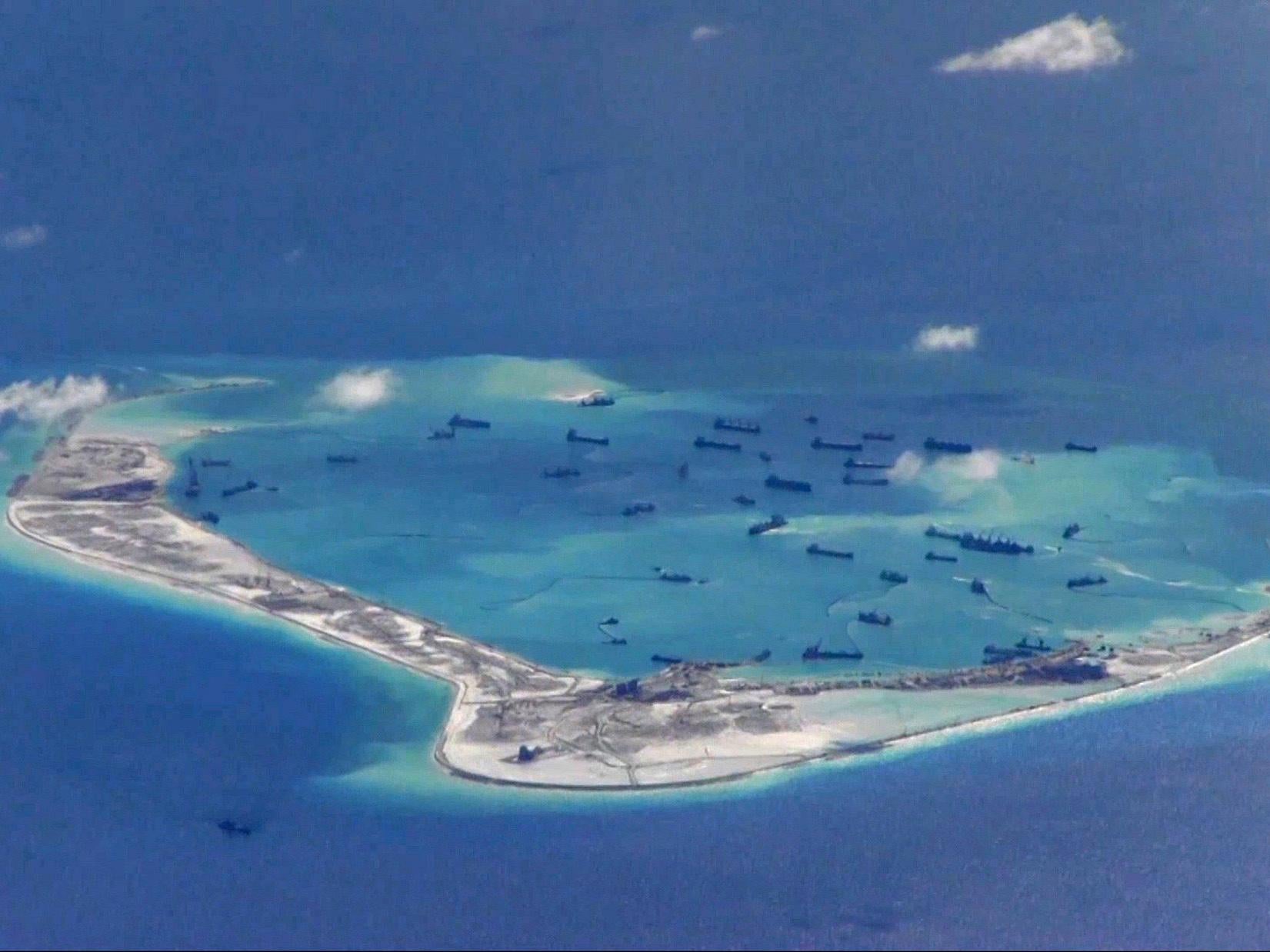Chinese air force lands nuclear-capable bombers on island in disputed South China Sea
Beijing accused of destabilising region after air force conducts exercises with long-range aircraft

Your support helps us to tell the story
From reproductive rights to climate change to Big Tech, The Independent is on the ground when the story is developing. Whether it's investigating the financials of Elon Musk's pro-Trump PAC or producing our latest documentary, 'The A Word', which shines a light on the American women fighting for reproductive rights, we know how important it is to parse out the facts from the messaging.
At such a critical moment in US history, we need reporters on the ground. Your donation allows us to keep sending journalists to speak to both sides of the story.
The Independent is trusted by Americans across the entire political spectrum. And unlike many other quality news outlets, we choose not to lock Americans out of our reporting and analysis with paywalls. We believe quality journalism should be available to everyone, paid for by those who can afford it.
Your support makes all the difference.The Chinese air force has landed long-range bombers at an airport in the South China Sea for the first time, a move which has fuelled concerns about Beijing's ambitions to assert control over the disputed territory.
China conducted take-off and landing training with nuclear-capable H-6K aircraft, state media reported, prompting US warnings about destabilising region.
Beijing is pitted against smaller neighbours in multiple disputes over islands, coral reefs and lagoons in the waters of the South China Sea, which are important for global commerce and rich in fish and potential oil and gas reserves.
The defence ministry said the exercises were carried out on an island reef but it did not specify when or where. The drills involved several H-6Ks taking off from an air base and making a simulated strike against sea targets before landing, the ministry said.
The statement quoted a Chinese military expert, Wang Mingliang, as saying the exercises would help the air force improve its "real combat ability against all kinds of marine security threats".
The Washington-based Asia Maritime Transparency Initiative, using Chinese social media posts, identified the location of the exercise as Woody Island, China's largest base in the Paracel Islands.
With a combat radius of nearly 1,900 nautical miles, the H-6K bomber would have all of Southeast Asia in its range from the island, the centre said.
Further south, in the Spratly group of islands, China has constructed seven man-made islands and equipped them with runways, hangers, radar and missile stations, further cementing its vast territorial claims in the busy waterway.
The US and others accuse Beijing of militarising the region to bolster its claims.
"The United States remains committed to a free and open Indo-Pacific," said a Pentagon spokesman. "We have seen these same reports and China's continued militarisation of disputed features in the South China Sea only serves to raise tensions and destabilise the region."
Admiral Phil Davidson, head of the US Pacific Command, said last month that China had built up enough military force in the South China Sea to completely control the region.
“Once occupied, China will be able to extend its influence thousands of miles to the south and project power deep into Oceania,” he said. “[China] will be able to use these bases to challenge US presence in the region, and any forces deployed to the islands would easily overwhelm the military forces of any other South China Sea-claimants.
“In short, China is now capable of controlling the South China Sea in all scenarios short of war with the United States.”
Earlier this month the White House warned the US there would be "near-term and long-term consequences” for China if it continued to militarise the South China Sea.
In March, China condemned the US for "serious political and military provocation" after a US Navy destroyer sailed within 12 nautical miles of an artificial island built in disputed waters.
Join our commenting forum
Join thought-provoking conversations, follow other Independent readers and see their replies
Comments